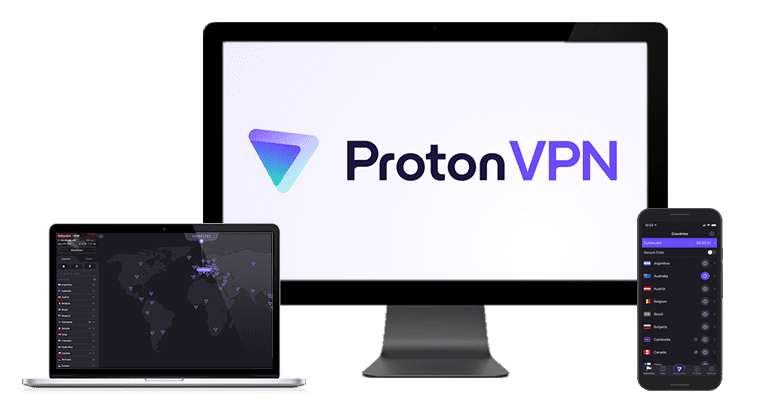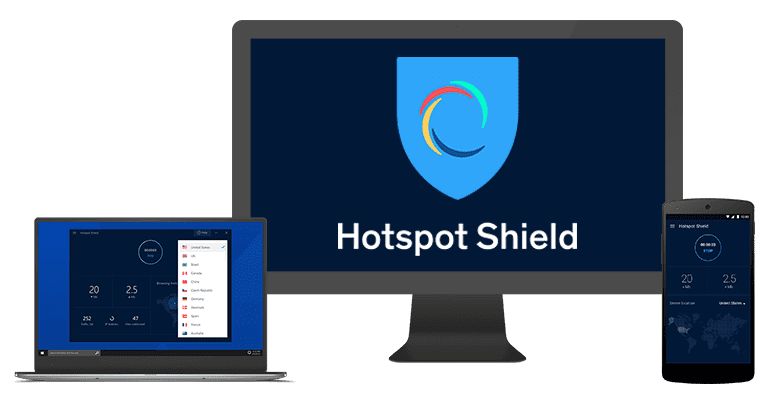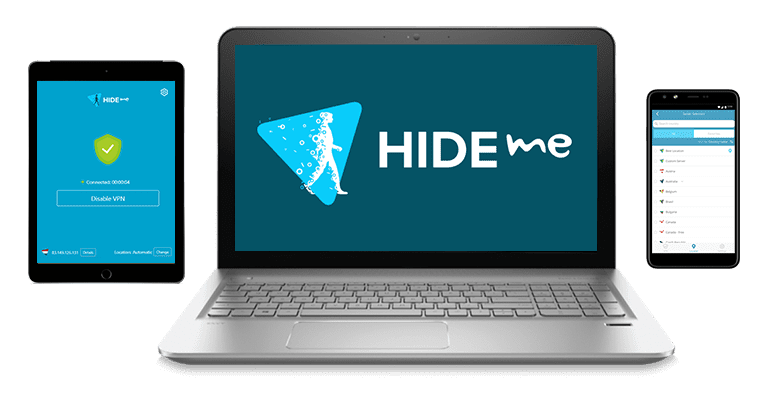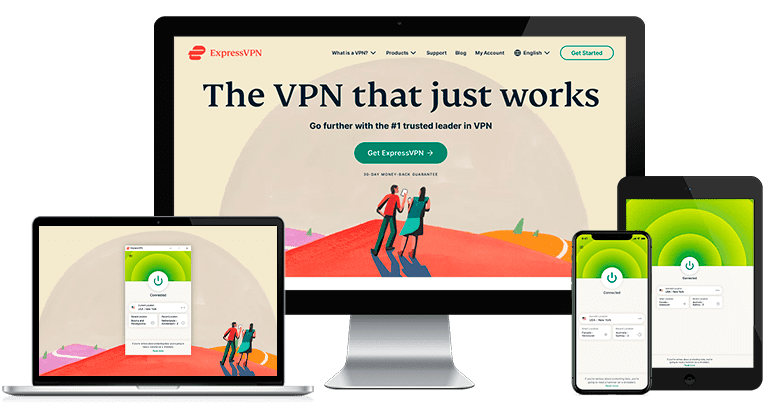Are Free VPNs Safe? All the Pros & Cons of Free VPNs in 2025
VPNs are an essential security tool to protect your daily online connections, and there are hundreds of free VPNs on the market. While it makes sense to not want to pay for something you can get for free, it’s difficult to know which free VPNs you can actually trust.
Many free VPNs simply aren’t safe — they log and sell your data, download malware to your devices, or just don’t work properly. Weak encryption, data leaks, or blocked servers make most free VPNs unsafe or unusable.
In this guide, I’ll show you the risks of using a free VPN, how to find the best free service, and which free VPNs are safe to use. Editor’s Note: We value our relationship with our readers, and we strive to earn your trust through transparency and integrity. We are in the same ownership group as some of the industry-leading products reviewed on this site: ExpressVPN, Cyberghost, Private Internet Access, and Intego. However, this does not affect our review process, as we adhere to a strict testing methodology.
Quick Guide: Best Safe Free VPNs in 2025
- Proton VPN — Unlimited data and high-quality security features, but can’t choose your server connection.
- Hotspot Shield — Catapult Hydra protocol provides consistent speeds, but blocks streaming services for free users.
- hide.me — Great for torrenting with unlimited data, but no access to Bolt feature for better speeds.
How Safe Are Free VPNs? The Risks of Using a Free VPN
A VPN is designed to encrypt your connection and mask your IP address, letting you use the internet privately and securely. When you use one of the best premium VPNs, you pay a monthly subscription fee to access the service.
Many top VPNs offer “freemium” versions that are supported by paid users. These are limited in terms of server connections, speeds, and data use, but they’re reliable and secure (just like their premium counterparts).
Unfortunately, there are hundreds of independent free VPNs that are dangerous to use and could be even worse than not using a VPN at all. While these shady free services may show as having lots of downloads in the app stores, this doesn’t make them safe to use. Here’s a look at the key risks of using an unverified free VPN.
Security and Privacy
Free VPNs are often missing the essential features that keep your data secure. You’ll find weak or outdated encryption methods and connection protocols, gaps in security that cause data to leak, and no kill-switch to cut internet access if the VPN is interrupted. This makes it much easier for third parties to decrypt or intercept your data.
You’ll also find a shady or ambiguous privacy policy so it’s not clear what is happening to your personal information. Free VPNs have been known to log and store user connection data, selling it to marketers and affiliates — defeating the object of using a VPN in the first place.
Speeds
Free VPNs will throttle connection speeds so that the network infrastructure can cope with thousands of simultaneous users. This can slow your connection to a crawl, meaning you can’t stream, torrent, play online games, or even check your emails without lag and interruptions.
Data Caps
Be suspicious of independent free VPNs that offer unlimited data — VPNs are expensive to run, and offering a free service with no limits should make you question how the VPN can afford to operate. Reputable freemium VPNs may have unlimited data with a caveat, like Proton VPN — connect as much as you want, but you can’t choose your server.
When choosing a free VPN, you’ll need to be mindful that the free VPN offers enough data for your desired activities. Otherwise, you’ll quickly spend your allowance and limit your secure online connections.
Server Network
Often, free VPNs only have a handful of server locations available. These tend to be in popular locations, like the US, to appeal to the most users. With only a small network for free users, you can expect slow speeds and overcrowding, and you might not be able to connect to your desired location.
Advanced Features
High-quality VPNs include advanced features to boost security, like server obfuscation, multihop connections, or malware protection. Free VPNs don’t include extra features like this, so you won’t be able to customize your connection or add more layers of protection when using the service.
App Integrity
One of the biggest risks of unverified free VPNs is the integrity of the app itself. Free VPNs have been known to deploy malware and viruses on download, opening gateways into devices in an attempt to steal your data or lock you out and hold your information for ransom.
Are Paid VPNs Worth the Price?
Yes, a trustworthy paid VPN mitigates the issues and risks of using a free VPN. Paid VPNs don’t have to be expensive to be effective — there are cheap VPNs with outstanding security and privacy features, and you can even get a low-cost month-to-month VPN if you only need a VPN for a short time.
Ultimately, a paid VPN is worth the cost for peace of mind and guaranteed security and privacy when you’re online.
Comparison Table: Free VPN vs Paid VPN
Here’s a quick look at the key differences between the majority of unsecured free VPNs, a safe free VPN option, and a paid VPN.
| Unreliable Free VPNs | Proton VPN Free Plan | ExpressVPN | |
| Advanced Encryption | ✘ | ✔ | ✔ |
| Kill Switch | ✘ | ✔ | ✔ |
| Leak Protection | ✘ | ✔ | ✔ |
| Advanced Features | ✘ | ✘ | ✔ |
| Data Limits | Potentially unlimited | Unlimited | Unlimited |
| Server Network | 1-50+ | 5 free servers | 3,300+ servers in 105 countries |
| Cost | Free | Free | /month |
Top Tips: Choosing a Safe Free VPN
All the VPNs I recommend undergo rigorous testing and are ranked according to how well they perform. My team and I use the following criteria, which is a good starting point if you’re wondering how to choose a secure free service:
- High-quality security features — Some features — like AES-256-bit encryption, leak protection, and a kill switch — are essential for protecting your data. Extra features, like obfuscation or split tunneling, are nice perks for a free service.
- Zero-logs privacy policy — Carefully check the privacy policy associated with the VPN. If your data is shared with third parties or the privacy policy is poorly worded or non-existent, don’t download the app.
- Data and speed limits — Your chosen VPN needs to be fast enough for your desired activities (whether you’re checking emails or live-streaming sports) and provide enough data to perform them. A minimum of 2GB is enough for casual browsing.
- Server network – Check that the VPN has servers in your ideal locations or in a nearby country, as this will ensure you get faster speeds and more reliable connections.
- Customer support – Most free VPNs don’t offer live chat support, but you should be able to contact someone if you need help — look for email ticketing or an online knowledge base.
Best Free VPNs for Safe and Secure Connections
1. Proton VPN — Best Free VPN in 2025
Proton VPN takes the top spot with its impressive free plan. You get unlimited data, high-quality security and privacy features, and no intrusive ads as free plans are supported by paying users. The only downside is you can’t choose your server location — you’re auto-connected to the nearest option.
2. Hotspot Shield — Fast Free VPN
Hotspot Shield’s proprietary Catapult Hydra protocol keeps speeds fast across its free network, which includes connections in Singapore, the UK, and the US. You get unlimited data, but Hotspot Shield actively blocks streaming platforms and is supported by intrusive ads.
3. hide.me — Free VPN for Torrenting
hide.me’s free VPN supports torrenting, which is unusual as most free VPNs don’t allow data-heavy activity. You can choose from connections in 7 countries until you’ve used 10GB monthly data — after that, you’re auto-connected to a nearby server.
4. Bonus: ExpressVPN — Best VPN Overall in 2025
ExpressVPN takes the top spot as the best VPN in 2025. It has fast speeds, premium security, strong privacy, and a network of more than 3,300 servers worldwide. It’s not free, but plans start at /month — you can read more about it in our in-depth ExpressVPN review.
FAQs: Free VPNs
Are free VPNs safe to use?
Can I trust a free VPN?
What free VPNs are safe?
Is it worth paying for a VPN?
Choose a Safe Free VPN to Protect Your Data
Many free VPNs aren’t safe, and it can be a hassle trying to figure out which one will actually work to keep you secure online. Fortunately, there are safe free VPNs available, like Proton VPN — while these reputable free services are limited, you can rest assured they’ll protect your connections.
If you want secure connections without restrictions, you can upgrade your free service to a paid plan. Better still, opt for one of the best VPNs in 2025, like ExpressVPN, and get a significant discount when you sign up for a 2-year plan.












Leave a Comment
Cancel